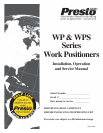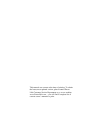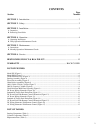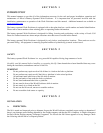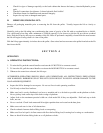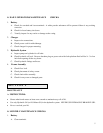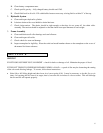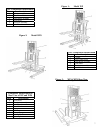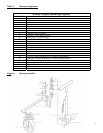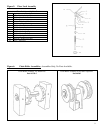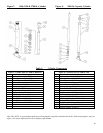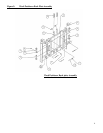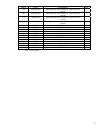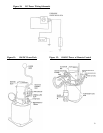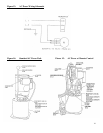4
• Check for signs of damage especially to the back cabinet that houses the battery, electrical/hydraulic power
pack.
• Check all connections for tightness. Is there hydraulic fluid visible?
• Check base frame for dimensions and structural integrity.
• Inspect for any bent or damaged metal parts.
B. REMOVING FROM PALLET:
Remove all packaging materials prior to removing the lift from the pallet. Visually inspect the lift as closely as
possible.
Carefully pick up the lift taking into consideration the center of gravity of the lift with an overhead hoist or forklift.
Use a hoist and nylon sling with a minimum of 2,000-lb capacity if you choose to pick the lift up with an overhead
hoist. Pick the lift up by the top cross member of the lift. Have all personnel completely cleared from the area because
the lift will begin to swing when it is clear of the pallet.
Pick the lift up approximately six inches above the pallet. Once raised and secure remove the pallet from below the lift
then lower the lift.
SECTION 4
OPERATION
A. OPERATING INSTRUCTIONS:
1. To raise the lift, push the control handle or activate the UP BUTTON on a remote control.
2. To lower the lift, pull the control handle or activate the DOWN BUTTON on a remote control.
3. Whenever the controls are released, the lift stops.
AUTHORIZED OPERATORS SHOULD READ AND UNDERSTAND ALL INSTRUCTIONS, PRECAUTIONS
AND WARNINGS. IMPROPER USE OF THIS LIFT COULD RESULT IN INJURY AND/OR DAMAGE TO THE
LOAD AND/OR EQUIPMENT.
• Inspect the lift for damaged or worn parts. Do not use if not in safe operating condition.
• Use lift only on hard level surfaces.
• Make sure load is evenly distributed, not loose or unstable and is as far back as possible on the platform or forks.
Do not pick up loads on the tips of the forks or edge of platform.
• Adjust forks to the maximum practical width on a fork model lift if they are adjustable. Pick loads up on both
forks, not one.
• Do not overload. Check load center and lift weight capacities that are located on the data plate.
• Make sure work area is clear of all obstructions.
• Check overhead clearance before lifting loads or transporting.
• Make sure floor lock pad is in firm contact with floor before lifting load, lowering load or using as a workstation.
• Brace or block lift when sliding loads on or off platform or forks.



